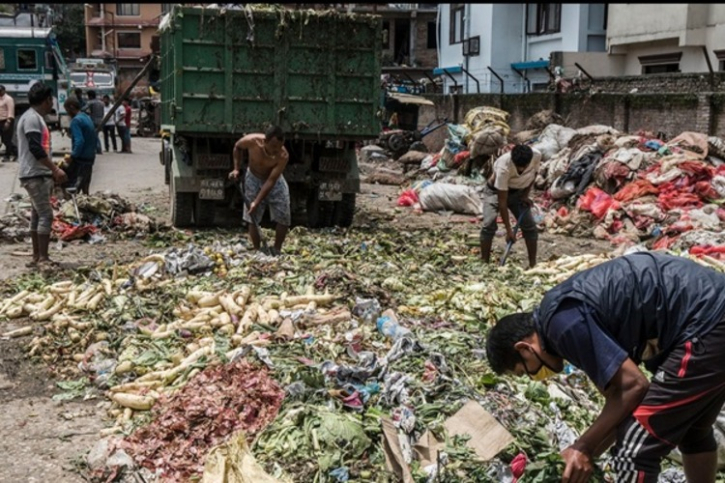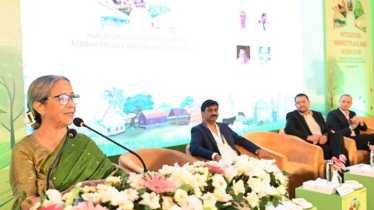
Bangladesh wastes nearly 34% of its available food annually, creating significant economic, environmental, and social challenges, according to a World Bank study presented at a national conference in Dhaka on 29 September.
The study revealed that more than 34,000 square kilometres of farmland—approximately 27% of the country’s cultivated area—is used to grow food that ultimately goes uneaten. The resulting economic loss is estimated to equal 4% of Bangladesh’s GDP.
Son Than Vho, senior agriculture specialist at the World Bank, highlighted that food loss and waste also contribute heavily to climate change, accounting for 13% of the country’s greenhouse gas emissions, or roughly 29 million tonnes of CO2 equivalent.
The study underscores a stark paradox: while 31% of Bangladeshis face food insecurity and 66% cannot afford a healthy diet, vast quantities of food are wasted.
The findings were presented at the conference "Towards Zero Food Waste and Loss: Building a Sustainable Food Value Chain in Bangladesh," organised by the Centre for Policy Dialogue (CPD) in partnership with the Embassy of Denmark, FAO, the World Bank, and WFP.
The report found that most food losses occur during production, transport, handling, storage, and processing, while waste is concentrated at retail and consumer levels. Net loss rates for key commodities include rice (23%), lentils (27%), fish (36%), and mangoes (29%).
On average, a Bangladeshi household wastes 82 kilograms of food per year, more than households in the United States, the Netherlands, or Japan. FAO deputy representative Dia Sanou noted that paddy losses, including pre-harvest, range from 23–28%, while post-harvest wheat losses average 17.6%. Losses for horticultural crops range from 17% to 32%, including mangoes (31.7%), bananas (19.9%), potatoes (21.8%), carrots (26.8%), tomatoes (27.9%), and red amaranth (16.9%). Tomatoes also experience an additional 10% loss in the field.
The fisheries sector is similarly affected. Farida Akhter, Fisheries and Livestock Adviser, said nearly 30% of fish harvested in Bangladesh is discarded due to illegal nets and indiscriminate fishing. She explained that fishermen often trap all fish but retain only their targeted catch, discarding the rest, which damages biodiversity and natural resources.
Farida Akhter added that farmers face poor storage, low prices, and distribution gaps, forcing many to abandon their produce despite ongoing production. Meanwhile, inequality and overconsumption exacerbate food insecurity, with 16% of the population experiencing severe food insecurity as of April 2025.
CPD Executive Director Fahmida Khatun emphasized that reducing food loss is critical to achieving food security. "Despite remarkable growth over the last five decades, Bangladesh still suffers from malnutrition and undernutrition, and food distribution remains unequal. Addressing food loss is essential," she said.
Other speakers at the event included Jesse Wood, deputy country director of WFP Bangladesh; Dr Mohammad Emdad Ullah Mian, Secretary of the Ministry of Agriculture; and Food Ministry Additional Secretary Mohammad Yasin.





